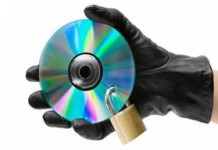 Publishers Weekly is reporting on this new study:
Publishers Weekly is reporting on this new study:
Digital content monitoring company Attributor is out with another survey gauging the amount of book piracy that lurks on the Internet. Unlike its earlier study that looked to put a figure on how much book piracy is occurring, the new report attempts to measure the demand for pirated books. And accompanying the report, Attributor announced that it is launching a consumer awareness campaign aimed at educating consumers about the importance of downloading legal copies of e-books.
The study found that demand for pirated e-books has increased by 54% over the last year, including a 20% increase since the spring launch of the iPad. Attributor measured demand by identifying large cyberlocker sites in the book space and then pulling the top 89 selling titles on Amazon. The company then entered keywords typically associated with searches for pirated e-books for each of the 89 books into a Google search to measure demand. The company estimated that 1.5 million to 3 million people worldwide were looking for pirated editions of the 89 e-books on a daily basis.
More details on the site.
The problem is, of course, that Attributor has a vested interest in showing that there is lots of piracy. If piracy goes away they go out of business. So I really don’t know how much one can rely on their figures. They were the ones who came up with an earlier study trying to put a value on pirated books. It wasn’t, in my opinion, statistics finest hour – not by a long shot.
Brian O’Leary, who has done some real independent research in this area has a couple of tweets on the new study:
make no mistake: you want to create demand for @Attributor services. I want to understand what is going on. Fundamentally different
I am so tired of @Attributor spin control. Demonstrate how piracy is a problem and THEN do PR. Don’t pretend what you do is research


































“a 20% increase since the spring launch of the iPad”
More like: since the spring launch of agency pricing. I think that is a much bigger contributor to piracy than the iPad.
Excellent piece Paul – and well said Brian O’Leary !
Say what you want about Attributor, but many of the authors I know who follow their own books being pirated have seen the same massive upswing in piracy numbers.
If nothing else, the iPad and the amount of publicity it’s given ebooks has made more thieving jerks aware of ebooks.
Has there been any study, any evidence, ANYWHERE that shows that piracy results in lost sales? Short answer: No.
Has there been any “study” that says piracy doesn’t mean lost sales. Short answer: No.
Long answer: All the evidence on both sides has been primarily anecdotal; however, I have friends whose sales have fallen drastically as pirate downloads have risen dramatically. I have a friend whose publisher has cancelled her successful series because of the vast number of pirate downloads as the money sales have disappeared. I have very successful friends whose backlist sales which have risen for many years has suddenly fallen drastically while pirates have downloaded hundreds of thousands of copies of their books.
You can quibble all you want about studies, but I’m seeing writing friends hurt, book series I enjoy ending, and authors so frustrated by lost sales and the utter contempt that pirates show their hard work that they are stopping writing.
I’ve had a chance to try to reproduce the results reported by Attributor. What I find is that the data supports a narrative quite different from Attributor’s. It turns out that consumer demand for pirated ebooks stopped growing earlier this year.
“The Norwegian study looked at almost 2,000 online music users, all over the age of 15. Researchers found that those who downloaded “free” music – whether from lawful or seedy sources – were also 10 times more likely to pay for music. This would make music pirates the industry’s largest audience for digital sales.
Wisely, the study did not rely on music pirates’ honesty. Researchers asked music buyers to prove that they had proof of purchase.”
http://www.guardian.co.uk/music/2009/apr/21/study-finds-pirates-buy-more-music
“The report, prepared by University of London researchers, Birgitte Andersen and Marion Frenz, found that music downloads have a positive effect on music purchases among Canadian downloaders but that there is no effect taken over the entire population aged 15 and over.”
http://www.ic.gc.ca/eic/site/ippd-dppi.nsf/eng/h_ip01456.html
“According to the first empirical study of its kind in the UK, by Cambridge law professor Patricia Akester, it’s the former. DRM is so rage-inducing, even to ordinary, legal users of content, that it can even drive the blind to download illegal electronic Bibles.”
http://www.law.cam.ac.uk/faculty-resources/download/technological-accommodation-of-conflicts-between-freedom-of-expression-and-drm-the-first-empirical-assessment/6286/pdf
Music and books are apples and oranges as comparisons. Most books are once and done while music is played over and over again.
Very few illegal downloaders will actually buy the book they read for free, and from the chatter on the pirate lists, if they like an author after a free sample, they want the illegal version of ALL her books.
I have author and reader friends who prowl most of the pirate lists looking for info on new download sites, and not a one has ever seen a comment like, “This writer is great. I think I’ll thank her for the great job she does and the pleasure she gives me by buying the rest of her books.”
Marilynn it is clear we disagree but I don’t want us to fall out over it 🙂 I am certain you honestly believe what you believe and that we are not going to persuade each other in these discussions 🙂 I apologise for the long post.
I do actually agree that music situation is not identical to eBooks one. But I believe that the principles are the same and the toot causes of piracy are the same. I have significant personal experiences with my son and his friends and school mates, and through my involvement with online content companies as financial and management advisor. I am not claiming superior knowledge to yours but it means I myself at least have some grounds for believing what I believe.
And that is that there tends to be a small, even tiny, core of people who have always pirated and always will pirate. They are also hoarders. They download masses and masses of material that they don’t ever intend to use. But many studies have shown, and my own experience supports it, that they are also spenders who buy legit stuff when they like it.
Then there is another quite small group of people who are computer savvy and who know that they can get stuff for free should they chose. All they need is motivation. These are usually teenagers or in their twenties and are the ones who do the vast majority of the downloading not done by the core piraters.
In the case of the music industry this second group were clearly triggered by the crazy prices of CDs and when the sellers stopped offering lyrics, photos or anything with most of the CDs. Pirating exploded and they swapped around their music. Even despite this it has been shown by many studies that music sales were not hurt by pirating but by the general music market and other factors.
In the case of eBooks I simply do not believe that the 15-25 year olds age group, who were drivers of the music pirating, have any interest in eBook piracy. It just doesn’t make sense. The hoarders are doing some of it, for the same reason as with music. They are not downloading thousands of eBooks and spending their evenings glued to their eReader …. 🙂
The only other group is the 25-45 year olds (my personal guess at age groups) who know how to do it if they wish and only need to be motivated.
What makes sense is that this group of 25-45 year olds who know how to do it – are also gadget freaks (like me) who are seriously pissed off about the same profiteering that the music industry indulged in; are seriously pissed off with the amount of sheer hassle that DRM is causing and are also majorly pissed off that when they pay their money (MORE than the cost of a paper book!) they are told they still don’t own the eBook to do with what they wish!
Even so, as of today I simply do not believe that there is a large group of well educated book reading literates massing on the web, hungry to rip off writers and download and read hundreds or thousands of eBooks!
It’s just a dumb scenario that makes no sense. Also I have seen the torrent sites. I have seen the product and quality. I don’t believe for one minute that it is significantly affecting sales, yet.
Statistics on pirating are notoriously unreliable. Torrent sites have been know for years to inflate their download figures by orders of magnitude to pump up their reputation. Publishing companies (music and others) inflate the numbers by even more in order to gain sympathy and excuse their failure to sell what their egos have caused them to claim they could sell. It’s all a murky little game of self interests that only the terminally naive should buy into.
While I respect your and other opinion, as a rational human being I find that the inflated claims being made, by publishers and writers, about pirating are not credible. I also find that the refusal to accept that a) the use of DRM b) the current pricing regime being operated by the publishers c) the charging of such high prices allied with the inability to fully own the product – is now beginning to motivate that second group to take things into their own hands and downloading their eBooks from torrents – also to be simply not credible.
If the Publishers continue to move speedily toward ePublishing, and if they persist in their current DRM and pricing policies then I do believe that the level of piracy will grow by orders of magnitude and not only that but I would be very likely to join them for all of the reasons I have set out. It is 2010 and people do not like to be ripped off. And when they have an alternative they will take it.
“If the Publishers continue to move speedily toward ePublishing, and if they persist in their current DRM and pricing policies then I do believe that the level of piracy will grow by orders of magnitude”
This is probably true, but IMO the number one thing that continues to grow piracy are geographical restrictions.
Piracy grows naturally as access to e-reading devices does, since it follows that interest in ebooks is growing. While pirating will hurt sales some, how much, and in what way is largely controllable by the publisher/author and how they release and market titles. I believe that their biggest sin right now still isn’t DRM, but it’s simply lack of availability. In this case I define availability as the following:
– day and date release for new books as they come out in hardcover. Windowing (or even not releasing) will only hurt you
– entire back list catalog easily available for purchase at ALL stores. Exclusives are not going to help you, or holes in the catalog
– can be purchased in all world regions at approximately the _same_ price, and the customer shouldn’t even know or care what region they’re in for sales purposes
– can be read on any device currently in circulation, and at approximately the same price (I shouldn’t be punished or rewarded for being locked into a particular brand of reader)
– can be purchased at a reasonable price. $12.99 is not a reasonable price. $9.99 is also pushing it – try 7.99 and lower.
– having to install/use a 3rd party application to purchase a book. While I love my Sony, Amazon’s one-click did it right.
A large part of the attraction of ebooks is the “get it now instantly” mentality, and if you fail to satisfy that demand, you’re going to lose sales. It can be because people are pirating the books, or simply because they decide they’ll “get it later”, and then fail to do so. I’m actually going to make a wild guess that currently the publishing industry is losing a lot more sales due to failing to make books available, than because people choose to pirate the books rather than buying a legit version of them.
To give an illustration of how the availability aspect works: Today I looked at the latest book by David Weber – “Out of the Dark”. Unfortunately it fails the availability check by not being available outside the US (region and date) and costing $12.99. As it’s a new series that have gotten rather mediocre reviews, it doesn’t seem to merit the high price. Rather than going through the trouble of setting up a second Amazon account with a US address, using my real account to send a gift certificate to the US account, purchasing the book through the US account and an IP proxy, downloading the file to Kindle4PC and stripping the DRM, I decided to just use IRC. 2 minutes and a “@find weber out of the dark” later I had the file on my HDD, ready to be copied to my reader through Calibre. Of course, I could have just waited for a price drop, but with the iron hand of agency pricing ensuring that there’s no competition, there certainly doesn’t seem to be any incentive for any price drops, and definitely not to the level I’m used to for Weber’s works ($6.00 at Baen). There’s also the problem that when the ebook gets released outside the US, as it’s a “new” release for my region, it could be priced accordingly. By that time, I may also have forgotten or lost interest in the book – it’s a lost sale regardless.
(Incidentally, I not only buy ebooks when they meet the availability check, but I have on one occasion donated using Paypal directly to the author for the full non-discounted price of 8 books I’ve pirated that weren’t available in my region – they each cost $8. While putting up Paypal donation links may not exactly be a solution to the problem, they can’t exactly hurt)
Really well made points Frode. I agree.